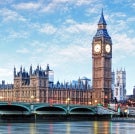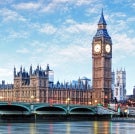Sir Keir Starmer will reportedly delay the recognition of the Palestinian state if Labour forms the next government, over concerns it could jeopardise Britain’s relationship with the United States.
The Labour leader has pledged to recognise Palestinian statehood and said it would be part of any Middle East peace accord with Israel.
Sir Keir said: “That needs to be part of the process, it’s very important we have a viable Palestinian state alongside a safe and secure Israel.”
He is under pressure from the left of the party to follow through on the Labour manifesto promise, but members of his inner circle have concerns this could isolate him from major allies such as the US at the start of his premiership, The Times reports.
A source close to Sir Keir told the newspaper that British recognition of Palestine was a “process” and would have the most impact if done in “coordination with allies”. They denied the US would influence the timing of an announcement.
Last month the Labour leader downplayed suggestions the recognition of the Palestinian state by the British would happen anytime soon.
“It has got to be at the right time in the process because we need a viable Palestinian state alongside a safe and secure Israel,” he said. “We don’t have either of those at the moment, and therefore it has got to be at the point of the process where we could see both of those outcomes.”
A number of countries, such as Ireland, Spain and Norway have moved to recognise Palestinian statehood, following the October 7 terror attacks by Hamas and the war in Gaza, which has claimed more than 37,000 lives.
Sir Keir Starmer’s position on the conflict has previously caused unease among some in his party, with the leader facing criticism for not calling for an immediate ceasefire sooner.
In November last year, a host of Sir Keir’s shadow ministers broke ranks to call for an immediate ceasefire, including Naz Shah, Paul Barker and Afzal Khan.
A total of 10 shadow ministers and parliamentary aides rebelled, with some 56 Labour members defying a three-line whip and backing an amendment to the King’s Speech.
The party faced setbacks in the local elections in some previously safe areas, particularly those with large Muslim populations.
Source: independent.co.uk



